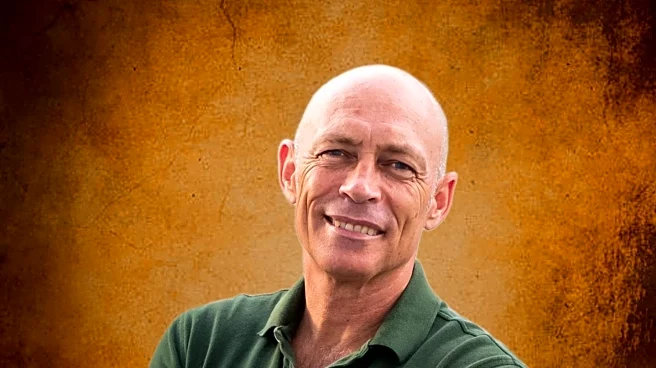What's Happening?
Dr. Peter Attia, a Stanford-trained physician, is pioneering the field of longevity medicine, focusing on improving the quality of life during the final decade. He emphasizes the importance of physical
and emotional health to mitigate the decline typically experienced in the last years of life. Attia's approach includes rigorous physical evaluations and personalized health plans, which he offers to a select group of patients. His methods, which include advanced diagnostic tools and a focus on exercise and nutrition, aim to extend healthy living and delay the onset of chronic diseases. Attia's philosophy is encapsulated in his concept of 'Medicine 3.0,' which prioritizes prevention over treatment.
Why It's Important?
The significance of Dr. Attia's work lies in its potential to shift the healthcare paradigm from reactive to proactive care. By focusing on prevention and lifestyle changes, his approach could reduce the burden of chronic diseases, which are major causes of death in the U.S. This could lead to a healthier aging population, reducing healthcare costs and improving quality of life. However, the high cost of his program, which can reach six figures, raises questions about accessibility and equity in healthcare. The broader adoption of his methods could influence public health policies and encourage more investment in preventive care.
What's Next?
Dr. Attia plans to launch a digital health app to make his longevity program more accessible. This app could democratize access to his methods, allowing more people to benefit from his preventive approach without the need for direct physician involvement. The success of this app could lead to wider acceptance and integration of longevity medicine into mainstream healthcare. Additionally, ongoing research and data collection from his patients may provide further evidence to support his methods, potentially influencing healthcare practices and policies.
Beyond the Headlines
Dr. Attia's approach also highlights the importance of mental health in longevity. His personal experiences with depression and therapy underscore the need for a holistic approach to health that includes emotional well-being. This perspective could lead to a more comprehensive understanding of health, where mental and physical health are equally prioritized. Furthermore, his work challenges traditional medical education, which often lacks emphasis on exercise and nutrition, suggesting a need for curriculum reform to better prepare future physicians.









